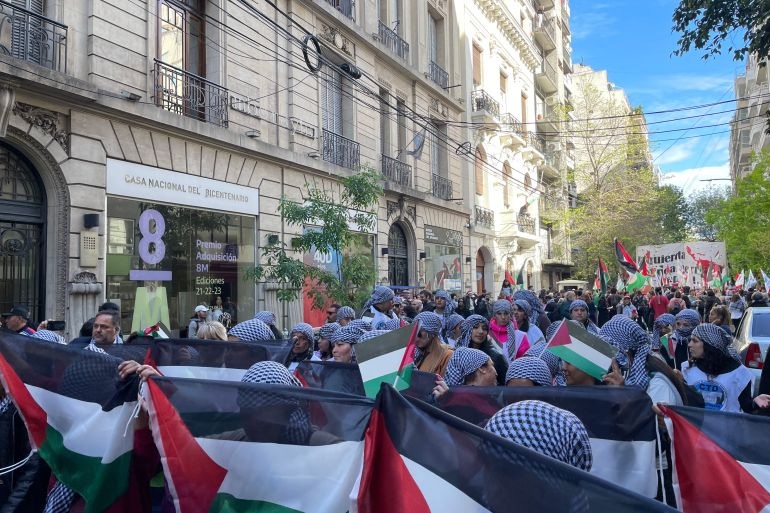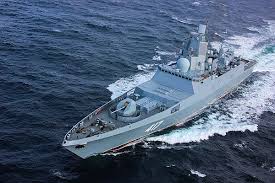
BUENOS AIRES: The upscale neighbourhood of Recoleta was pulsing with the sound of drums and chanting last month, as protesters gathered outside the Palestinian embassy in Buenos Aires to call for an end to Israel’s war in Gaza. But amid the sea of Palestinian flags, Silvia Ferreyra gripped a different symbol of solidarity. Above her head, she held a banner depicting a blue ribbon of water trapped behind a lock and chain. Printed above the picture in large red type was the phrase, “Fuera Mekorot”.
Ferreyra, 52, had a simple message. She wanted Mekorot, Israel’s state-run water company, out of Argentina. Since September 2022, seven Argentinian provinces have signed wide-ranging agreements granting Mekorot significant influence over how they allocate water resources. Yet, with Israel drawing outcry for its deadly military campaign in Gaza, Argentinian activists are looking to leverage the public attention to pressure the government into cutting ties with the company.
“We are trying to [spread] the information that this is not only something completely foreign to our country, but that in our country there is a business … causing conflict in Palestine,” said Ferreyra, a longtime organiser who works in the Argentinian Chamber of Deputies’s environmental commission. Mekorot’s future in Argentina cannot be evaluated “without taking into account the current situation and the context of the conflict there in the Gaza Strip”, she added. “We have to discuss the origins of this conflict more deeply.”
Though widely seen as a world leader in water management technology, Mekorot has drawn international condemnation for its policies in Gaza and the West Bank. It has controlled water supplies in the two Palestinian territories since Israel occupied them in 1967. Though not directly named, the company’s activities were referenced in a 2022 report by United Nations Special Rapporteur for Human Rights Michael Lynk, which accused Israel of implementing a system of “apartheid” against Palestinians.
The report identified access to water as a major source of inequality. “The utilities and services which the [Israeli] settlements enjoy — water, power, housing, access to well-paid jobs, roads and industrial investment — are far superior to those available to the Palestinians,” it explained. The Israeli nonprofit B’Tselem also blamed “Israel’s deliberately discriminatory” policies for water shortages in the West Bank.
In an April report, B’Tselem found that only 36 percent of Palestinians in the area had running water throughout the year. There were also wide discrepancies in water usage. Israeli settlers in the West Bank consumed an average of 247 litres (65 gallons) of water per capita each day, while Palestinians used just 82.4 (21 gallons) — limiting their ability to meet their basic needs for hydration, hygiene, sanitation and everyday chores. “To make up for the shortage, the Palestinian Authority is forced to purchase water from Israel’s national water company, Mekorot, at a much higher cost,” the report explained.
When Israel began its military campaign last month, it used Mekorot to cut the water supply to Gaza completely, forcing residents to drink polluted water. Hospitals, meanwhile, were left without proper sanitation. “Israel is using its strategic control over water resources on the one hand, and water distribution on the other, as a geopolitical tool and does so in highly unequal ways,” said Erik Swyngedouw, a geographer at the University of Manchester who researches the intersection of water and politics.
Mekorot did not respond to a request for comment about its humanitarian record in Gaza and the West Bank, nor about concerns over its expansion in Argentina. The accusations that Mekorot has contributed to the oppression of Palestinians have prompted some groups to sever ties with the Israeli water company over the past decade. In the Netherlands, the water company Vitens announced in 2013 that it would end relations with Mekorot after consulting with the Dutch foreign ministry. — Aljazeera






